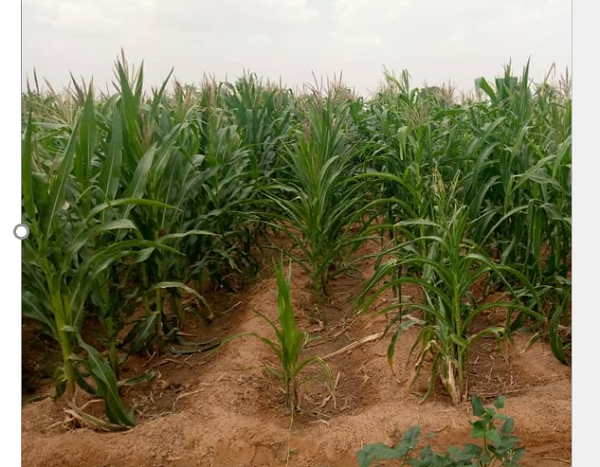
In a groundbreaking move, the Federal Government of Nigeria has given the green light for the commercial release of genetically modified (GM) maize varieties designed to combat insect infestations and thrive in drought conditions.
These transformative maize varieties, collectively known as ‘TELA’ maize, received approval from the National Committee on Naming, Registration and Release of Crop Varieties, Livestock Breeds/Fisheries (NCNRRCVLF) during its 37th meeting at the National Centre for Genetic Resources and Biotechnology (NACGRAB) in Ibadan on January 11, 2024.
The pivotal approval was spearheaded by the head of the NCNRRCVLF, Prof Olusoji Olufajo marking a significant milestone in Nigeria’s agricultural landscape. The four approved varieties, SAMMAZ 72T, SAMMAZ 73T, SAMMAZ 74T and SAMMAZ 75T, are heralded for their drought tolerance and resistance to stem-borers and fall armyworm, offering a yield advantage of up to 10 tonnes per hectare under optimal agronomic practices.
These varieties, developed through biotechnology, stand out in their potential to address food security challenges. Stem-borers and fall armyworms have historically undermined maize production across Africa, causing significant losses. Stem borers, in particular, contribute to reduced maize yields in multiple African nations. Fall armyworms, on the other hand, can devastate up to 20 million metric tons of maize annually in Africa, a quantity sufficient to feed 100 million people.
The environmental release approval for these varieties was granted by the National Biosafety Management Agency (NBMA) in October 2021, paving the way for their subsequent registration and commercial release.
The Institute for Agricultural Research (IAR) Samaru, Ahmadu Bello University Zaria, played a leading role in the development of these improved maize varieties through the TELA maize public-private partnership, coordinated by the African Agricultural Technology Foundation (AATF). The TELA maize project, extending its impact to five countries — Ethiopia, Kenya, Mozambique, Nigeria, and South Africa — represents a collaborative effort to enhance maize productivity and address pressing agricultural challenges.
Executive director of IAR, Prof. Ado Yusuf expressed pride in the scientists at IAR, highlighting their dedication to addressing maize productivity challenges. He emphasised the rigorous research and biotechnological tools employed over several years to develop and validate these varieties.
Executive director of AATF, Dr. Canisius Kanangire celebrated the release, noting its alignment with the Federal Government’s Agricultural Transformation agenda and its potential contribution to food and nutrition security. He reiterated AATF’s commitment to tackling farmers’ challenges across the continent.
Executive secretary of the Agricultural Research Council of Nigeria (ARCN), Prof. Garba Sharubutu underscored the approval’s significance, describing it as a critical milestone for biotechnology’s potential in ensuring food security and improving livelihoods in Africa.
Director-general of the National Biotechnology Development Agency (NABDA), Prof. Mustapha Abdullahi lauded the decision, foreseeing reduced pesticide use on maize, benefiting humans, livestock and the environment.
TELA maize project manager, Dr. Sylvester Oikeh applauded Nigeria’s decision and called on other African countries to follow suit. He commended the scientists for their dedication and looked forward to similar decisions benefitting farmers.
The TELA Maize project involves collaboration with agricultural research institutes in Kenya, Mozambique, Ethiopia and South Africa, along with the International Maize and Wheat Improvement Centre (CIMMYT) and Bayer. Funding comes from the Bill and Melinda Gates Foundation and USAID, reflecting a concerted effort to revolutionise maize cultivation and contribute to sustainable agriculture.


